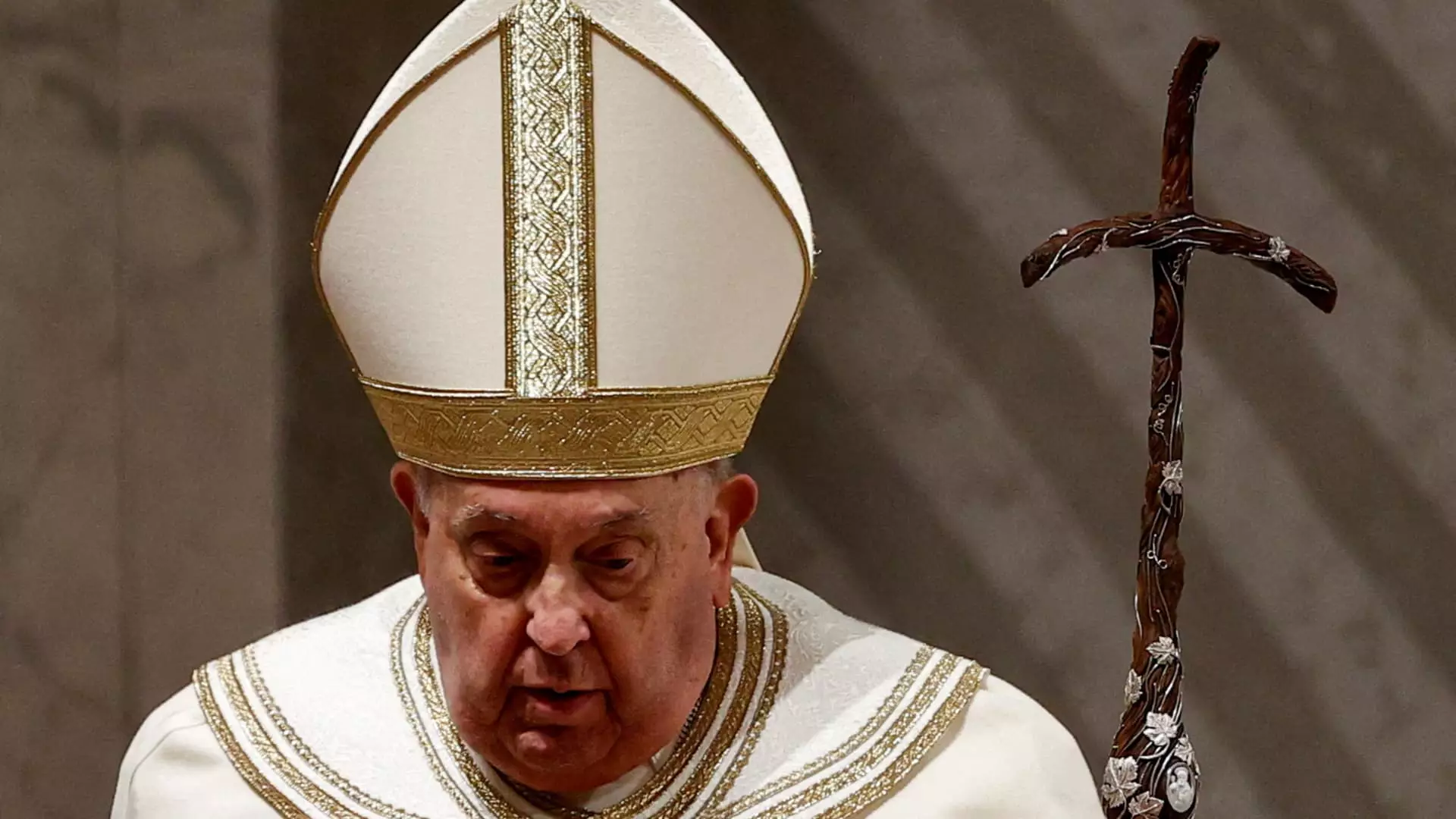Pope Francis, the 88-year-old leader of the Catholic Church, has been hospitalized at Rome’s Gemelli hospital since February 14 due to a serious case of double pneumonia. The Vatican has recently updated the public about his health, revealing that the pope experienced significant respiratory challenges that necessitated supplemental oxygen and blood transfusions. A statement from the Vatican acknowledged that he had a “tranquil” night, yet the ongoing complexities of his condition raise concerns for his long-term welfare.
Double pneumonia is considered a severe infection of both lungs, characterized by inflammation and potential scarring that can hinder normal breathing functions. The situation is further complicated by the fact that Pope Francis’ illness has been identified as “complex,” presumably involving multiple microorganisms. Given that older adults, particularly those with pre-existing health complications, are at higher risk, Pope Francis’s medical team is closely monitoring his status. Recent reports pointed out that the pope’s prior medical history rendered him more susceptible, especially given his earlier struggles with pleurisy and the partial removal of one lung during his youth.
The Vatican’s declaration of the pope’s condition as “critical” brought alarm, especially with his advanced age and frailty out in the public eye. The administration of high-flow oxygen during what was referred to as a “prolonged asthma-like respiratory crisis” suggests that Pope Francis’s breathing difficulties are severe. Furthermore, blood transfusions were necessary due to a low platelet count linked to anemia, indicating that his body faces multiple vulnerabilities as it fights this dual lung infection.
Doctors attending to the pope have highlighted the acute risk of his lung infection progressing into sepsis—a life-threatening condition that arises when the body responds inadequately to infection. Such complications could impede the effective treatment and recovery that the pope desperately needs. Indeed, the statements from medical professionals reiterate the delicate balance between treatment and the potential for serious outcomes that come with advanced medical age.
A Broader Reflection on Health in Leadership
As the world watches closely, the health of Pope Francis serves as a poignant reminder of the connection between leadership and personal well-being. Even the most influential figures are not immune to health challenges, revealing a deeper vulnerability that exists in all human endeavors. In many ways, Pope Francis’s ongoing health struggles underscore the importance of resilience and support systems in leadership roles, reminding us that the strength of even the highest office can be tested by life’s unpredictable circumstances.
In sum, while the Vatican assures that Pope Francis had a restful night, the intricate dynamics of his health condition pose ongoing challenges. The papacy has seen its fair share of leaders face health battles, but it is the fragile nature of human existence that underscores the need for empathy and understanding. As developments unfold, the focus remains not only on the pope’s immediate recovery but also on the broader implications his health may hold for the Catholic Church and its followers worldwide.

Leave a Reply